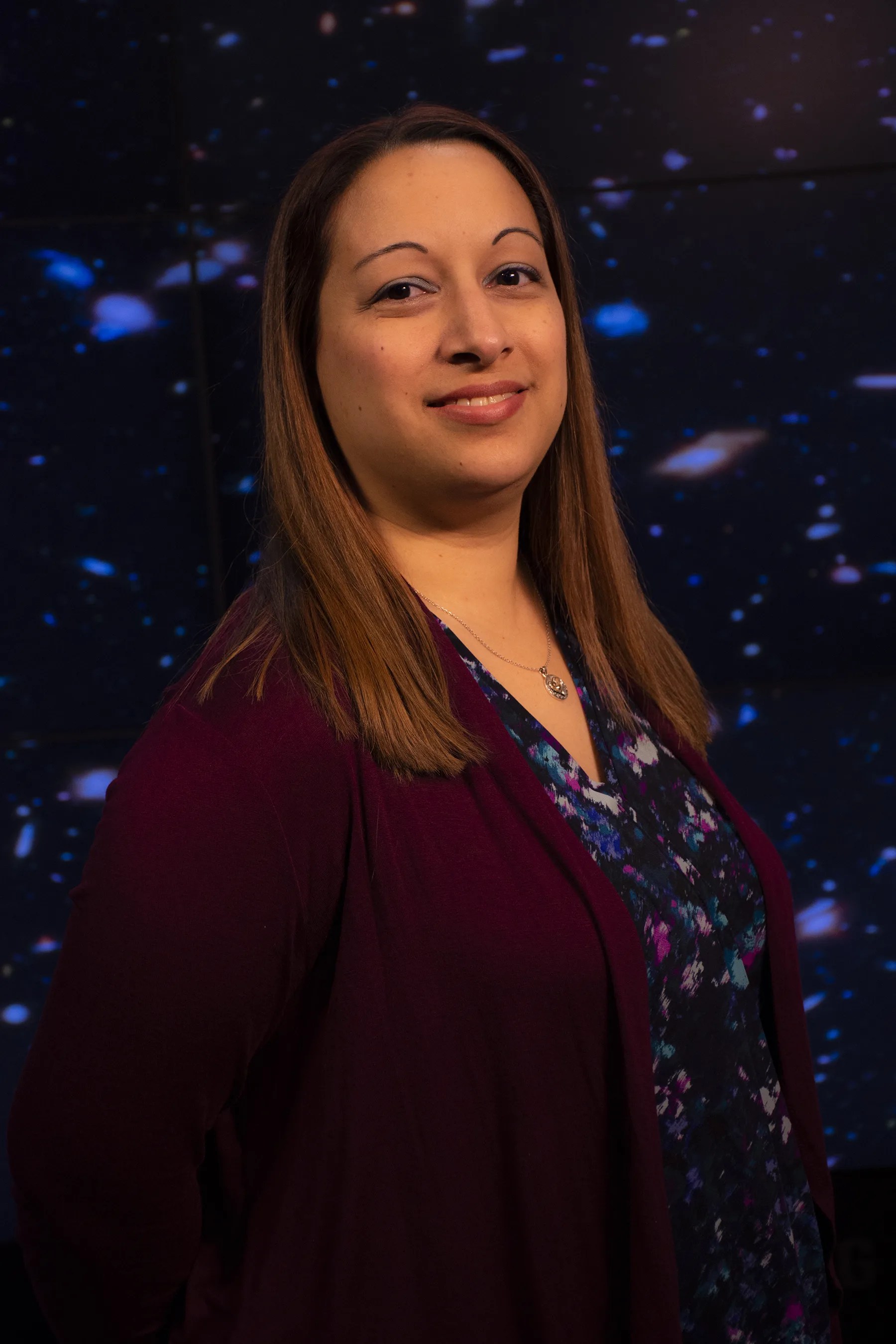
Dr. Knicole Colon
Project Scientist
Dr. Knicole Colon was 12 years old when she decided she wanted to be an astronomer. She was influenced by a love of both science and science-fiction movies, as well as the enthusiasms of her dad, who bought her a telescope branded with the “From Earth to the Moon” miniseries she’d watched. “All these things happened at once and I just got hooked,” she said. “My dad has always been interested in learning about anything and everything, and around that time he was really interested in meteor showers and would make us all get up in the middle of the night to watch them.”
The movie “Contact” was another motivator, she said. “I think it was the idea of literally making contact: what would happen, what were those aliens really like? And it was so open-ended that there wasn’t really an answer, and I think that’s what got to me — it wasn’t a generic alien at the end of the movie that tried to kill us. It was totally different than anything else I’d seen.”
But Knicole didn’t just have a dream. The Mount Holly, New Jersey, preteen had a plan. “I just started taking every math and science class I could get.” That led to college courses in physics and astronomy, as she earned her bachelor’s degree in physics from The College of New Jersey. She then earned her master’s degree and doctorate in astronomy from the University of Florida, where she won a scholarship from the National Science Foundation.
During her studies, she won a National Geographic Society Young Explorers Grant and a Lewis and Clark Fund for Exploration and Field Research in Astrobiology from the American Philosophical Society. She used the money from the awards to travel to one of the telescopes she needed to use for her graduate degree research.
Knicole went on to work at the University of Hawaii in Honolulu and Lehigh University in Bethlehem, Pennsylvania, before moving to NASA’s Ames Research Center in California and then to Goddard Space Flight Center in Maryland.
Knicole’s expertise is in searching for and gathering information on planets outside the solar system. At Lehigh University, she joined the Kilodegree Extremely Little Telescope (KELT) transit survey, which uses small, ground-based telescopes to search for giant planets around bright stars. She still works on the project as a member of the group that reviews and votes on candidate planets to decide which ones are worth further observation, helps decide which parts of the sky to observe next, and more.
At Ames and initially at Goddard, Knicole worked on the planet-finding Kepler mission and its later, extended K2 phase, eventually joining the Hubble Space Telescope team as well as the Transiting Exoplanet Survey Satellite team. Knicole uses a variety of ground-based and space-based optical and near-infrared telescopes for her research, which enable her to collect information on the size of the planets and the makeup of their atmospheres. Her main interest is researching the many different types of planetary systems and comparing them to the planets in our solar system.
The variety of missions you can experience working at NASA is part of its excitement, Knicole said. For instance, her previous research was focused on planetary atmospheres, but right now, one of the projects she works on looks at the ways that flares from stars can affect the planets around them.
“There are so many experts at NASA in different areas that someone can come up to your door every week and say, ‘I have this great idea, what do you think of this, should we propose a new mission, should we do this or that,’” she said. “Every day is different.”
Students interested in becoming astronomers should take lots of math and science classes, Knicole advised. Those will show you whether this type of work really does appeal to you. Seek out local astronomy clubs, and learn from their members. “They can point to anything in the sky, and it just gives you an appreciation for their knowledge. They can definitely teach you a lot.” If NASA has a center nearby, look into internships and other ways of connecting, like public events. Knicole emphasized that NASA is very receptive to interested students.
Knicole got to experience the joy of astronomical discovery in her own student years. “In grad school, when I was first getting into research, I had collected my first data from this new telescope that nobody had used before to look at exoplanets,” she recalled. “I saw the signal from the exoplanet, and I was so happy. I was so in awe that I was able to pull this whole project together. I just knew I was in the right place.”
That feeling stays with you through all your research projects, she said. “To see all this work go into these missions and then see the outcome be fruitful — those are my favorite moments.”
In addition to her love for astronomy, Knicole is a dedicated Philadelphia Eagles fan and tries to never miss watching a game. She also enjoys playing computer games, watching TV, and reading fantasy and science fiction novels.
